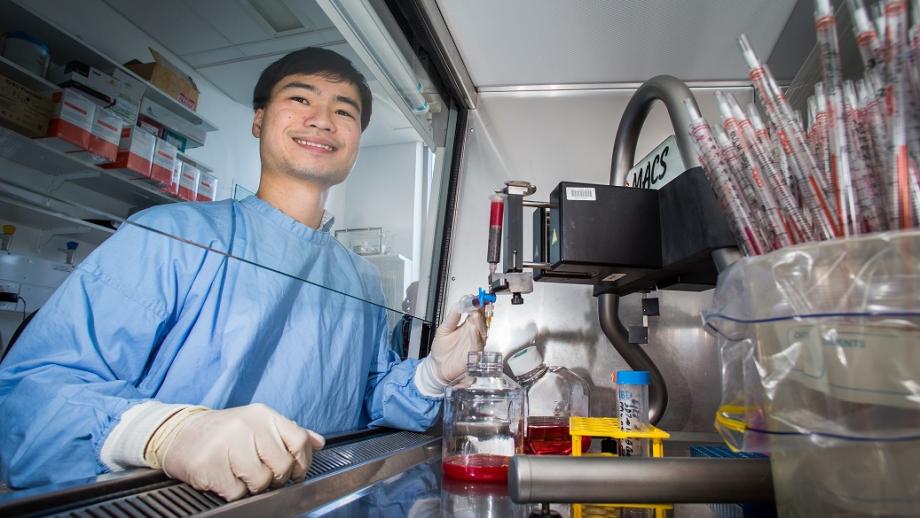ANU scientists aim to burst malaria's bubble
Groups of scientists across ANU are teaming up to fight one of the world's most deadly diseases. In the latest ANU Reporter, DR PHIL DOOLEY, BSc (Hons) '90, PhD '99 finds out more.
At a clinic in the western part of Cambodia, a young mother is given the malaria drug Artemisinin. After six days of treatment, the parasite has been cleared from her blood and she is back at home, helping the kids off to school again.
But it should have been three days.
"It's a worrying sign," says Professor Kiaran Kirk, leader of a malaria research department at the ANU Research School of Biology.
"Artemisinin is our last effective malaria drug but in parts of south-east Asia it's taking longer to work than it used to. It's the first sign that the malaria parasite is becoming resistant."
Artemisinin was developed from a Chinese herbal medicine during the Vietnam War.
It's had a few decades of fighting the disease but, as with all its predecessors, it seems set to lose the battle as the malaria parasite undergoes mutations that reduce the effectiveness of this killer treatment.
More than 500,000 people die of malaria every year and 40 per cent of the world's population is at risk of contracting the disease. Although it is such a threat, funding for research into finding a cure pales in comparison to that for cancers and heart disease, says Kirk.
"Pharmaceutical companies have the best funded labs in the world but they are conspicuously absent from malaria research. There is little profit to be made from antimalarials. So it falls largely to universities and research institutes to do the research."
Kirk, Dean of the ANU College of Medicine, Biology and the Environment, and his colleagues have built a thriving malaria research community of more than 40 academics spread throughout multiple Schools in the College. Many of the researchers meet on a weekly basis to share ideas and techniques.
"I moved to malaria research because of the community of parasitologists," says Biology PhD candidate Adelaide Dennis.

